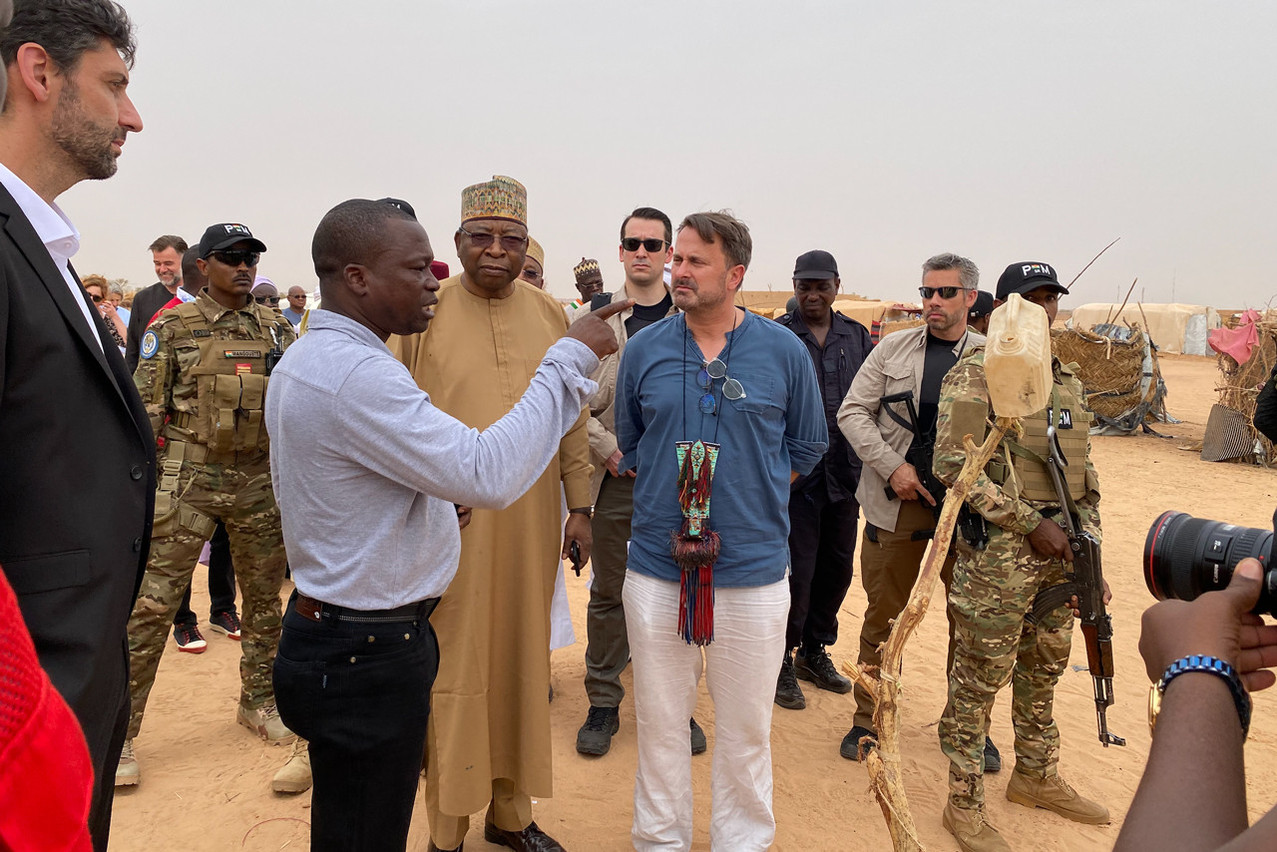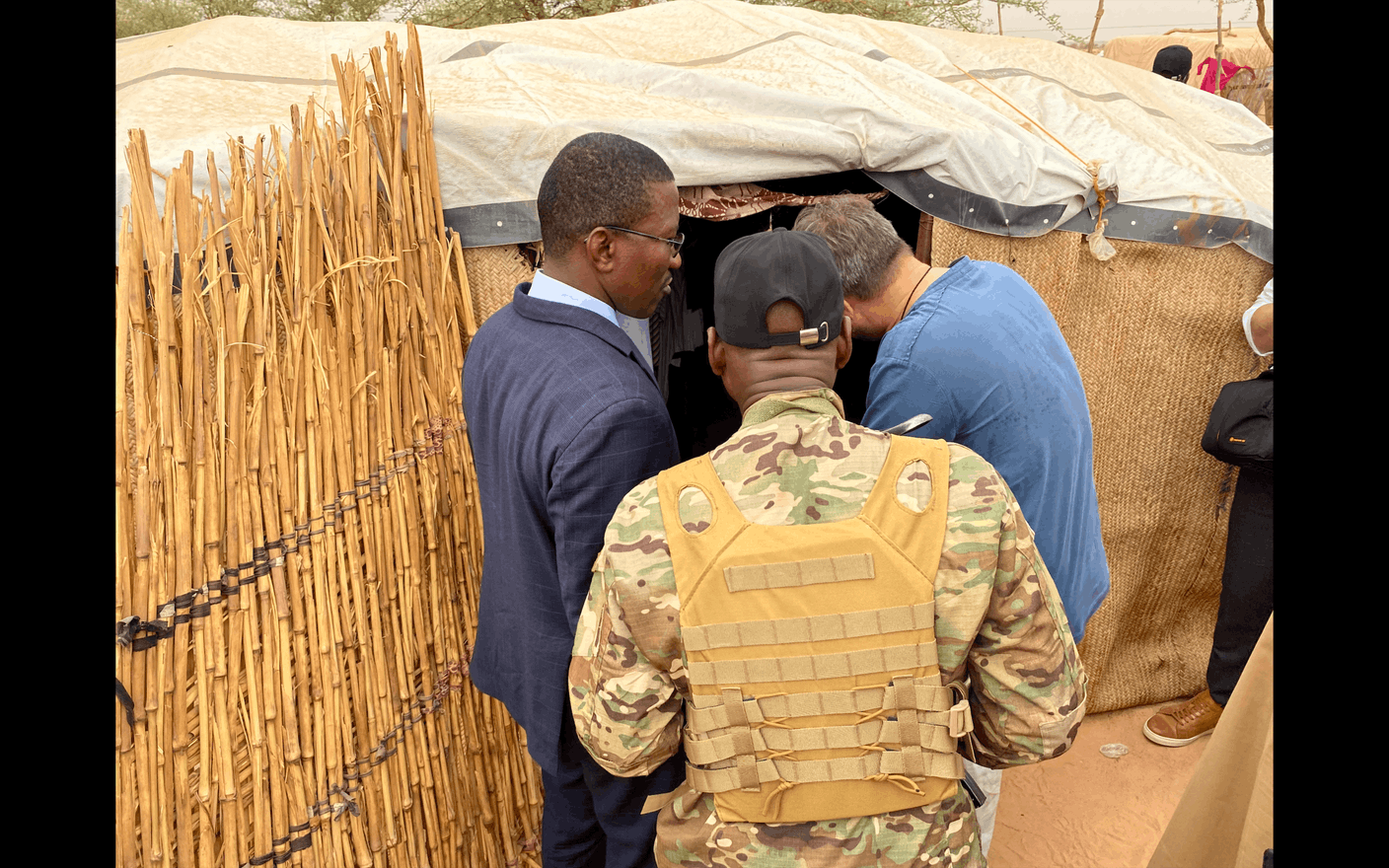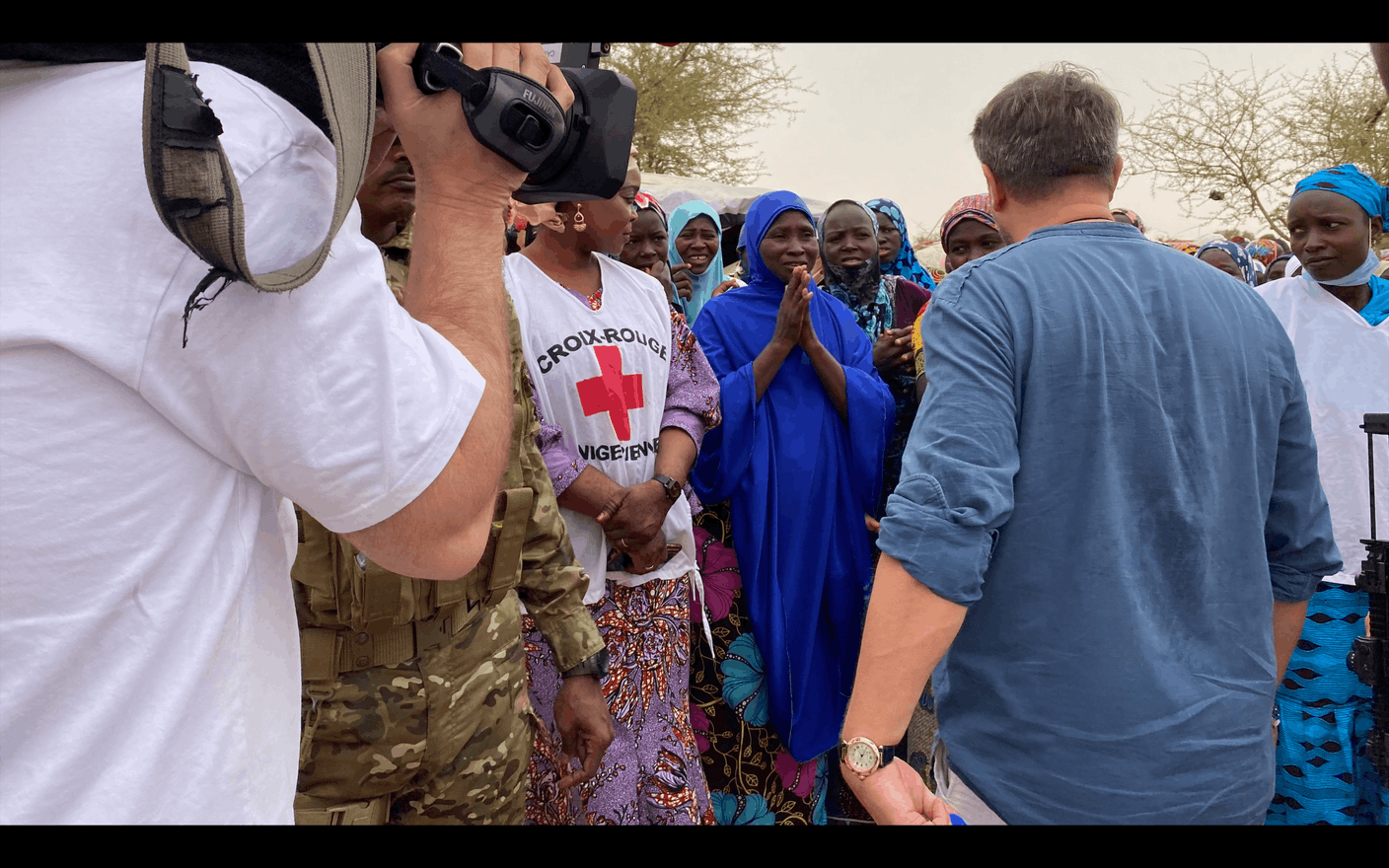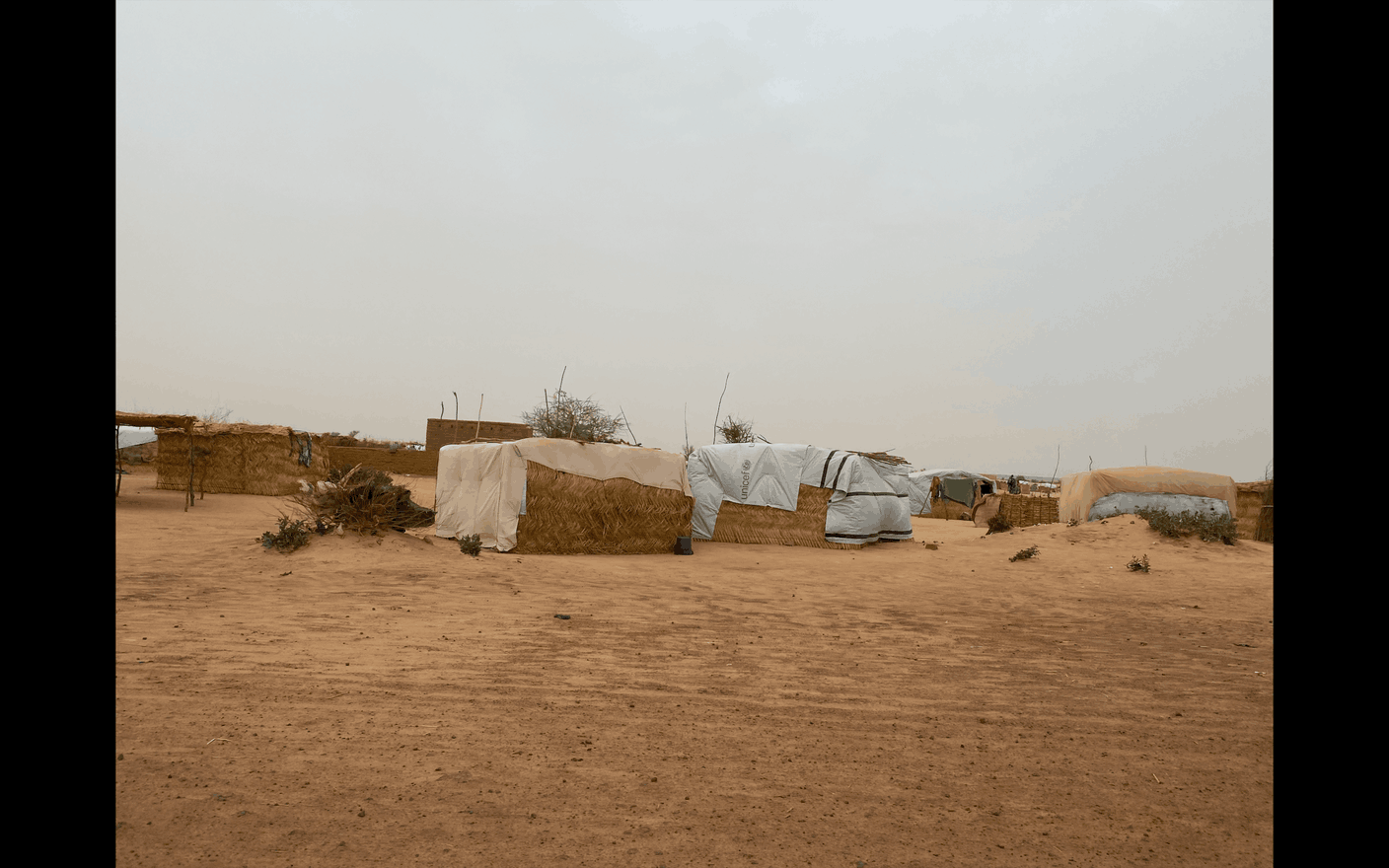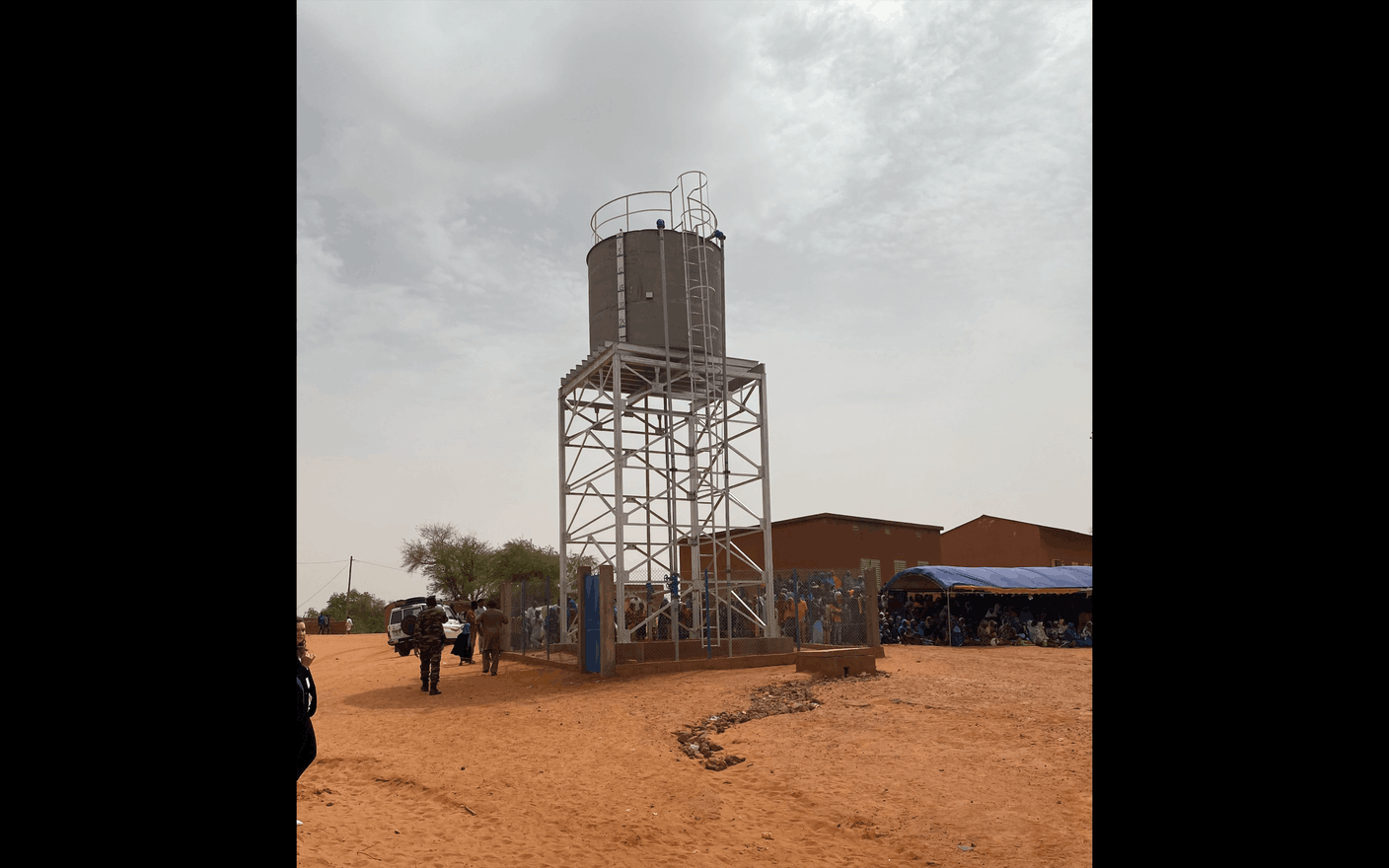Members of the Luxembourg delegation were received by the Luxembourg Red Cross director of international aid in Niger, Rémi Fabbri, head of mission for the Luxembourg Red Cross in Niger, Prosper Zombre, the national Red Cross president and Danish Red Cross staff, who are all responsible for different aspects in the functioning of the Ouallam camp.
Zombre explained that a large majority of the people in the Ouallam camp are internally displaced persons (IDPs) from neighboring villages in Niger, who have been forced to leave their homes due to increased insecurity and armed group activities in the country. However, in other camps like Diffa, where the Red Cross is also present, the profiles of refugees are more mixed with an influx mainly from neighbouring countries. The Ouallam camp, in comparison to other camp sites has a more favourable security situation, said Fabbri.
During a speech, Bettel noted that a peculiarity of the camp is that people are “displaced in their own continent,” and sympathized with the tough conditions and uncertainties they have to live through. Prime minister of Niger Ouhoumoudou Mahamadou reiterated that leaving one’s village “without knowing for how long, is an extremely difficult situation.”
The Luxembourg Red Cross activities in the camps mostly focus on infrastructural and humanitarian action—for example, the setting-up of durable temporary shelters, latrines, water and hygiene kits. They lead a joint cluster of actors invested in the creation of temporary shelters in Niger and organise workshops on the topic to help improve the construction of these shelters. The Danish branch oversees psychosocial aspects of the populations in the camp.
Read also
Support provided by the Luxembourg Red Cross caters to almost 2,000 households each year with each household estimated to have about five to six individuals. Each shelter is about 22 square metres to ensure everyone has at least 3.5 square metres of living space. Luxembourg offers pluriannual financing aimed at supporting 8,000 households, Zombre explained, adding that additional financing by other parties such as DG ECHO also helps support specific numbers of households each year.
Regarding reintegration into society and a potential exit strategy, Zombre explained that the peculiarity of the security conflict makes it quite difficult to give a specific timeframe as most of the displaced persons are often left no other choice but the return to the camps due to conflicts that may arise in other villages they may choose to move to, even on an interim basis.
In theory, refugees are expected to stay for a period of six months to aid their transition to normal life, but many find themselves still in the camps even after four to five years, said Zombre. This was also confirmed during the prime ministers’ questions to the refugees. Sometimes, the decision on who can stay or reapply for a space is based on vulnerability criteria in order to meet the a greater demand for shelter.
There’s a system of coordination with other international NGOs on the ground to avoid duplication of efforts via the so-called working group for shelter and non-food items (GTABNA) in Niger.
Simiri village water project in Niger
As part of the two-day visit by the Luxembourg delegation to Niger, Bettel, Franz Fayot and the Niger’s prime minister also visited the water supply system completed earlier this year.
The Sahel region is extremely exposed to the effects of climate change with temperatures estimated to rise 1.5 times faster than the rest of the world. Similar to other parts of the region, conflicts over water resources between herders and farmers have often led to internal tensions and conflicts.
Beyond the visible effects that a changing climate has on the environment, in an arid country like Niger, the associated socio-economic consequences can often be costly as subsistence farming represents the main source of livelihood for many households and accounts for almost half of the country’s gross domestic product.
“Climate can provoke migration; famine can provoke migration,” said Bettel.
The water storage facility serves the village of Simiri but also benefits locals in the environs and is projected to supply several thousand people. Project implementation was carried out by Niger’s ministry for hydraulics and sanitation with technical support provided by Luxembourg’s development agency, LuxDev.
The project which is part of a larger support programme for the water, hygiene and sanitation sector (Proseha) with an initial total budget of €8 million was financed by the European Union's Emergency Trust Fund for Africa and channeled through the joint financing mechanism instrument created with the support of Luxembourg. The mechanism also financed the installation of a solar panel close to the two other water storage systems around the vicinity.
Both Bettel and Ouhoumoudou referred to water resources as “life” and their lack as a root cause for health and other related problems. Ouhoumoudou underlined the need for equitable distribution and proper management of the facilities while also thanking the Luxembourg government for the support it provides.
